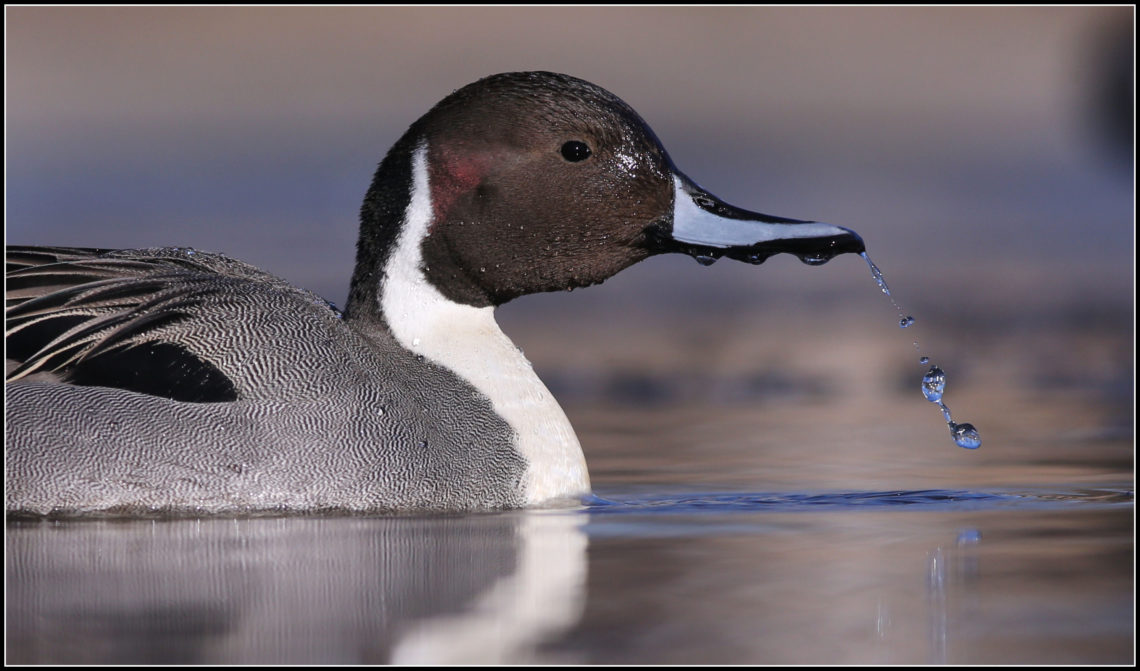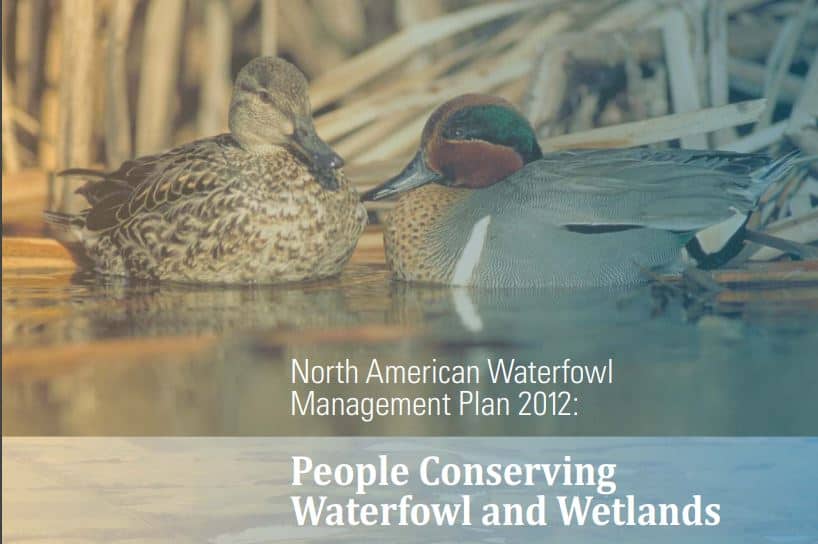
The North American Waterfowl Management Plan works to conserve birds like this Northern Pintail (photo courtesy of Winnu, public domain).
By Jennie Duberstein, Sonoran Joint Venture Coordinator
In September 2017 waterfowl and wetlands biologists and managers, social scientists, and others with an interest in waterfowl conservation gathered in Shepherdstown, West Virginia for the Future of Waterfowl Workshop 2. The goal: plan for the 2018 update to the North American Waterfowl Management Plan (NAWMP).
Since the NAWMP called for the establishment of the Migratory Bird Joint Ventures in 1986, the Joint Ventures have grown to cover nearly all of the U.S. and Canada and a good portion of Mexico. The Sonoran Joint Venture is part of this legacy. Established in 1999, the SJV was the first binational Joint Venture with Mexico, and the first Joint Venture formed to address the needs of all birds—not just waterfowl—from the start.
The NAWMP has undergone a number of significant revisions over the years, as well as smaller updates. The 2012 Revision changed the goals of the Plan for the first time, adding an explicit “people” goal. Plan authors recognized the need to move beyond biology. The new goals underscored the importance of understanding human needs and desires, social capacity for supporting ongoing conservation of waterfowl and wetlands, and the role of ecosystem services provided by waterfowl and wetlands.
After the release of the 2012 Plan the NAWMP Committee formed a Human Dimensions Working Group and a Public Engagement Team (SJV Coordinator Jennie Duberstein participates in both and leads a team focused on engaging the birding community). The first major project of this group was to conduct a U.S.-Canada-wide survey to better understand the behaviors, opinions, needs, and wishes of hunters, birders, and a random sample of U.S. and Canadian citizens. How do they interact with the environment? What drives their preferences for hunting and birding destinations? How can we engage them in wetlands and waterfowl conservation?
The recent meeting in Shepherdstown was a combination of plenary presentations about progress on the 2012 Revision goals, as well as break-out sessions to discuss strengths, weaknesses, opportunities, and threats moving forward. Researchers also presented preliminary results from the hunter, birder, and general public surveys; the team is currently working on more in-depth analyses and writing reports and publications that will be available in the coming year. This is a strong first step in learning how to better engage people in waterfowl and wetland conservation. The Public Engagement Team will use these results to guide their next steps in further engaging birders, private landowners, and hunters in waterfowl and wetland conservation.
A writing team is now working to incorporate outcomes from the workshop into a draft of the 2018 update, with the goal of having a version to share with the conservation community by the end of 2017. To learn more, visit https://nawmp.org/.


 English
English  Español
Español 